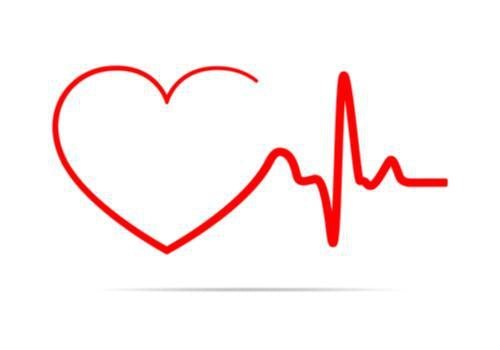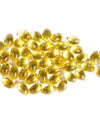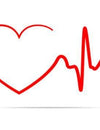No products in the cart.
"Thiamine vitamin B1 is an essential cofactor for 4 enzymes involved in the production of energy (ATP) and the synthesis of essential cellular molecules. The total body stores of thiamine are relatively small, and thiamine deficiency can develop secondary to inadequate nutrition, high alcohol consumption, increased urinary excretion and acute metabolic stress (Attaluri P, et.al., 2018). We need to keep in mind that we don’t have to have severe deficiencies of vitamins to develop symptoms that may not be recognized as caused by marginal deficiencies. 
![]() Fast food consumption will not provide adequate levels of nutrients even if they usually provide excess calories. Alcohol makes us use more of the B vitamins. It is also quite common to experience an increase in urinary excretion as we get older. Many men and women have to get up several times during the night, even if they are not very old. This makes us excrete more of both minerals and vitamins, especially the B vitamins which are water soluble. Thiamine deficiency has been suggested to be associated with many cardiovascular diseases and risk factors including type 1 and type 2 diabetes, obesity, chronic vascular inflammation, dyslipidemia, heart failure, myocardial infarction, nerve conduction defects, and depression (Eshak ES, Arafa AE, 2018). A lot of people die of cardiovascular disease, and thiamine deficiency could play a role in the development of that. Remember thiamine is only one of the B vitamins, and they are all very important. Reduced bioavailability is a major limiting factor of regular thiamine. To overcome this issue benfotiamine a form of thiamine which is much more bioavailable was developed (Ray V, et.al., 2018). A high quality vitamin B-complex should contain this form of vitamin B1 in addition to better bioavailable forms of some of the other B vitamins. References Attaluri P, Castillo A, Edriss H, Nugent K.Thiamine Deficiency: An Important Consideration in Critically Ill Patients. Am J Med Sci. 2018 Oct;356(4):382-390. Eshak ES, Arafa AE. Thiamine deficiency and cardiovascular disorders. Nutr Metab Cardiovasc Dis. 2018 Oct;28(10):965-972. Nutr Metab Cardiovasc Dis. 2018 Oct;28(10):965-972. Raj V, Ojha S, Howarth FC, Belur PD, Subramanya SB. Therapeutic potential of benfotiamine and its molecular targets. Eur Rev Med Pharmacol Sci. 2018 May;22(10):3261-3273.
Fast food consumption will not provide adequate levels of nutrients even if they usually provide excess calories. Alcohol makes us use more of the B vitamins. It is also quite common to experience an increase in urinary excretion as we get older. Many men and women have to get up several times during the night, even if they are not very old. This makes us excrete more of both minerals and vitamins, especially the B vitamins which are water soluble. Thiamine deficiency has been suggested to be associated with many cardiovascular diseases and risk factors including type 1 and type 2 diabetes, obesity, chronic vascular inflammation, dyslipidemia, heart failure, myocardial infarction, nerve conduction defects, and depression (Eshak ES, Arafa AE, 2018). A lot of people die of cardiovascular disease, and thiamine deficiency could play a role in the development of that. Remember thiamine is only one of the B vitamins, and they are all very important. Reduced bioavailability is a major limiting factor of regular thiamine. To overcome this issue benfotiamine a form of thiamine which is much more bioavailable was developed (Ray V, et.al., 2018). A high quality vitamin B-complex should contain this form of vitamin B1 in addition to better bioavailable forms of some of the other B vitamins. References Attaluri P, Castillo A, Edriss H, Nugent K.Thiamine Deficiency: An Important Consideration in Critically Ill Patients. Am J Med Sci. 2018 Oct;356(4):382-390. Eshak ES, Arafa AE. Thiamine deficiency and cardiovascular disorders. Nutr Metab Cardiovasc Dis. 2018 Oct;28(10):965-972. Nutr Metab Cardiovasc Dis. 2018 Oct;28(10):965-972. Raj V, Ojha S, Howarth FC, Belur PD, Subramanya SB. Therapeutic potential of benfotiamine and its molecular targets. Eur Rev Med Pharmacol Sci. 2018 May;22(10):3261-3273.
The B1 (thiamine), B2 (riboflavin), B6 (pyridoxine), and B12 (cobalamin) comes in their physiologically active form, making them easier to absorb. To get your bottle, click here."

 This is not a regular B vitamin formula.
This is not a regular B vitamin formula.
The B1 (thiamine), B2 (riboflavin), B6 (pyridoxine), and B12 (cobalamin) comes in their physiologically active form, making them easier to absorb. To get your bottle, click here."Leave a comment



 This is not a regular B vitamin formula.
This is not a regular B vitamin formula.





